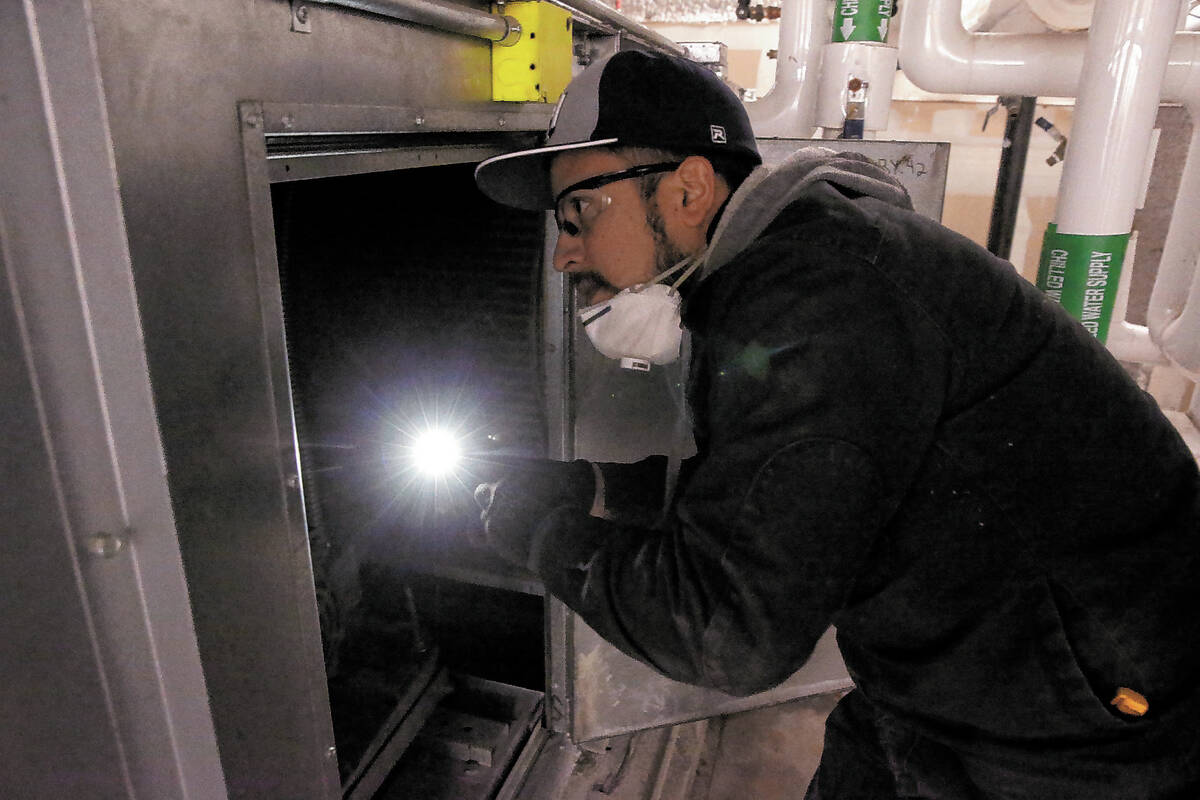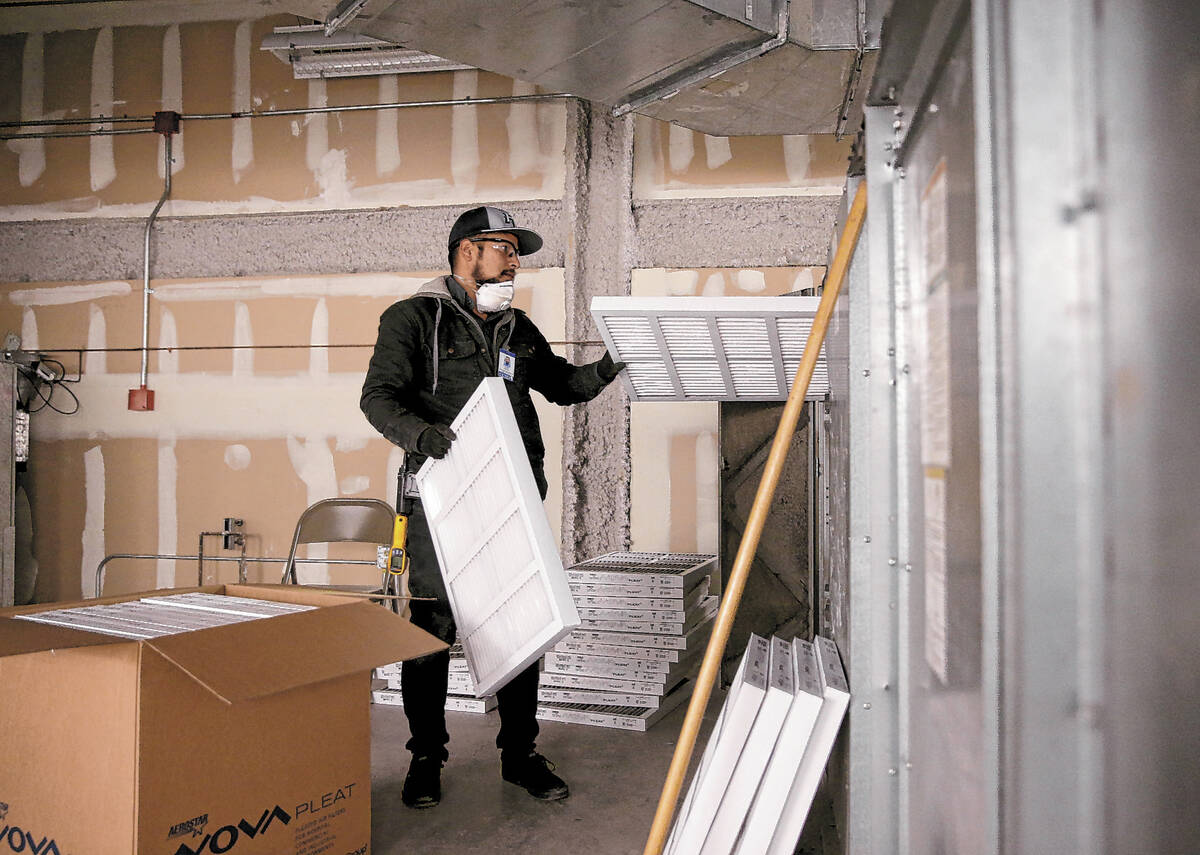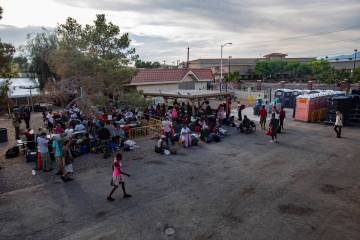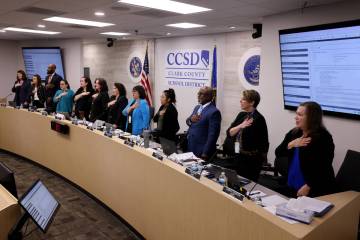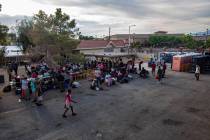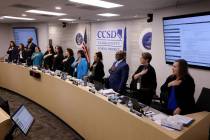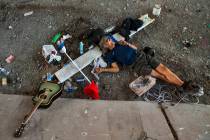EDITORIAL: A/C outages stem from lack of maintenance, not money
It’s not just parents and students who should be steamed by the Clark County School District’s air-conditioning problems. Taxpayers should be hot under the collar as well.
During the first week of school, 24 schools reported campuswide air-conditioning outages. Some of them even submitted work orders on more than one day. It’s likely many more students have experienced problems, too. That list doesn’t include schools where the air only partially went out.
This is no small matter. August in Las Vegas is brutally hot. It’s uncomfortable and potentially dangerous to leave children sitting in sweltering, windowless classrooms. It’s hard to imagine much learning happening either.
With over 300 school campuses, the occasional air-conditioning outage should be expected. Even modern technology fails. But 24 campuses experiencing total failures in just a week suggests a systemic problem.
The education establishment’s reflexive response to problems is to blame a lack of funding. That excuse won’t work here. Let’s take a walk down memory lane.
In 2012, the district decided it needed more capital funding. To achieve this, it pushed a ballot measure to increase property taxes. In September 2012, the air conditioning failed at Diskin Elementary School. The district temporarily sent those students to Decker Elementary School to keep them cool. District officials seized on this as proof voters needed to approve their ballot measure.
“The money that it would bring to our school would help fix these issues,” Principal Elizabeth Smith said. “We’re not the only school with A/C issues.”
The argument was clear. If the district had more money, it wouldn’t be having air-conditioning failures. One problem: The air-conditioning unit at Diskin wasn’t on the district’s list of proposed spending. It was a maintenance issue. The ballot measure lost handily even with then-President Barack Obama on the ballot.
The clear will of the voters didn’t stop the district in its quest for ever more tax dollars. In 2015, it asked the legislature to bypass having to receive voter approval to issue more bonds. Part of its pitch was that the money would replace aging HVAC systems. The district succeeded. The legislature gave the district access to more than $4 billion over 10 years. If that wasn’t enough, the district received another 10-year extension in 2021. Once again, the legislature rammed it through without voter approval.
But wait, there’s more. The federal government showered the district with hundreds of millions of dollars of inflation-causing Biden bucks.
The point should be obvious. The district once claimed that if only it had enough money, students wouldn’t be suffering a lack of air conditioning. But the district is now awash in cash, and the air-conditioning problem seems to be worse than before.
What happened? The district skimped on maintenance for years thanks to collective bargaining directing money to teacher salaries.
To balance the budget after the housing market crash, “we reduced custodians and preventative maintenance workers,” district lobbyist Joyce Haldeman told a legislative committee in 2015. “This resulted in fewer people doing more work and indirectly led to a much larger backlog of deferred maintenance.”
Even the largest tax increase in Nevada history in 2015, specifically to better fund education, didn’t fix that.
After becoming superintendent, Jesus Jara asked the Council of Great City Schools to look at district operations. In a 2018 report, it “found no evidence of a formal plan for predictive, preventive or routine maintenance programs.” Additionally, “no formal process identifies or prioritizes deferred maintenance projects. There was no replacement cycle plan for school-site mechanical equipment and other site needs.”
“The maintenance side is grossly underfunded, mismanaged,” David McKinnis, then the district’s chief of facilities, told the School Board in April 2019. “That in itself has put the district in a precarious position that we find ourselves today.”
No private business could afford this sloppiness. If a grocery store’s air conditioning went out, its customers would leave. But without universal school choice, many families are stuck in failing — and now boiling — schools.
The district’s failing air conditioners are yet more evidence that you can’t fix a broken system — or even keep it cool — by throwing more money at it.



